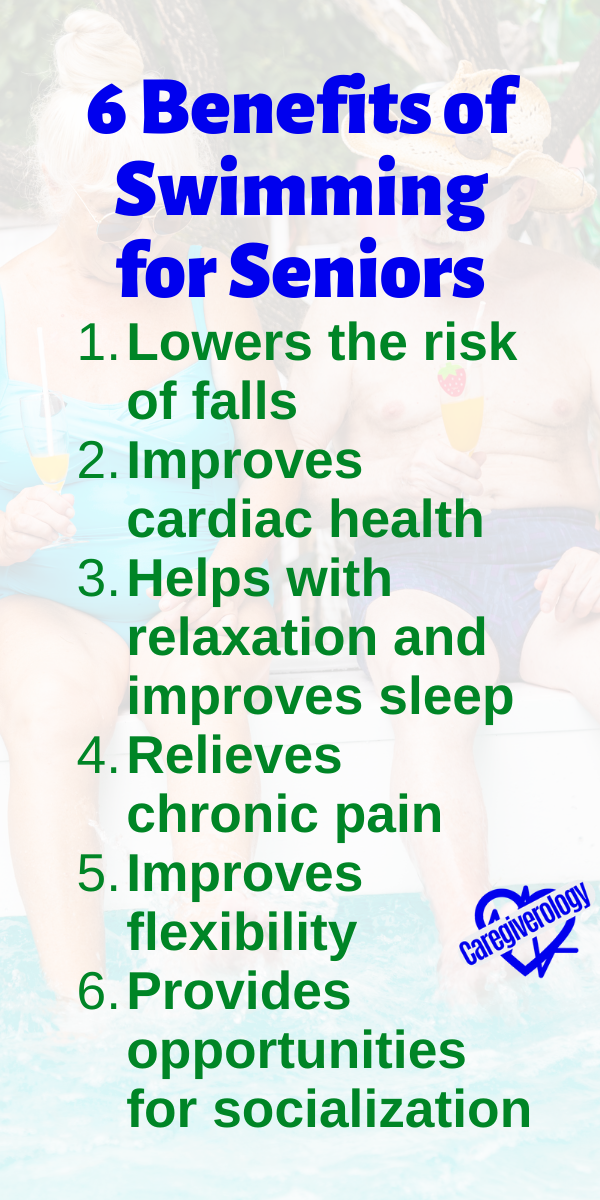6 Benefits of Swimming for Seniors
Everyone understands that exercise is beneficial to one's health. But, as we age, we tend to exercise less. One explanation is that our bodies begin to show indications of aging. Going for a run isn't as enjoyable as it once was if your joints hurt. If your balance is weak, hopping on a bike can be dangerous. And, even if your balance is delicate, inattentive drivers pose a significant risk. Another option is weightlifting, but it's easy to injure yourself if you're not careful.
Swimming provides the cardiovascular benefits of running and the strength benefits of weightlifting. You'll get the same benefits. But without injuring your joints or putting pressure on your muscles.
How often should seniors swim?
For anyone who wants to stay in shape as they age, swimming is an excellent fitness option. A modest 30-minute swim workout twice a week can do wonders for your health and well-being in every way.
Swimming is beneficial to seniors' health, and simply lounging by the pool with the finest pool lounge chairs may also help them relax.
Here are 6 Benefits of Swimming for Seniors
The swimming and water activity season has arrived. It may have been a while since you've swum. Now is the perfect moment to dive into the waters and reap the many advantages of swimming for seniors.
1. Swimming can lower the risk of falls
We usually take our sense of balance for granted. We may not even realize we have a problem until we start tripping. The risk of falling should be a severe concern for older folks. Study shows that seniors who swim have a 33% lower risk of falling than those who do not engage in water activity. They had less "postural sway" and could stand taller without moving their hips.
Tumbles typically occur due to environmental factors such as clutter or slick floors. But, they're also likely due to physical concerns such as poor eyesight and low blood pressure. Most importantly, balance and strength issues deteriorate as we age. Any exercise can help with these physical concerns. But studies suggest that swimming may be especially beneficial to older persons.
Swimming strengthens all main muscle groups. It improves the upper body, core muscles, and leg muscles. These body parts are all vital for posture and stability, reducing the chance of falling.
2. Swimming can improve Cardiac Health
Heart health becomes more of a concern as we get older. According to the CDC, cardiovascular disease is the top cause of mortality in America. This disease is primarily due to a lack of activity and a poor diet, but it is never too late to make a difference. Many people with heart disease often have other health issues, such as chronic pain. It is why swimming is such a beneficial workout because of the ease and support to the body.
Swimming strengthens your heart and improves your cardiovascular health and endurance. It will also help in lessening the risk of heart and lung disease. It lowers blood pressure and improves circulation. Swimming is an excellent aerobic workout that can help prevent heart disease. It's no surprise that many Olympic swimmers and medalists have excellent cardiovascular health.
3. Swimming helps you relax and improves sleep
You know how relaxing it is to take a bath. Swimming has the same stress-relieving properties as running. Floating in water gives you a weightless sense which relieves muscle stiffness. It also helps you disengage from all the sensory input you receive throughout the day. You can concentrate on your breathing and each stroke. Swimming has similar effects to meditation in that it puts you in a good mental state.
Swimming burns many calories and uses all the significant muscle parts. It makes older folks fall asleep. Many people also claim that swimming makes them feel relaxed which as we know, is an essential component of getting a good night's sleep.
Swimming can reduce stress and anxiety while also improving mental and physical health. It is an excellent way to calm the body and mind.
4. Swimming can Relieve Chronic Pain
If you suffer from back pain, you may think that resting and avoiding exercise is the best option. But, it is one of the worst things you can do. Excessive rest can weaken the muscles that support the lower back. It may result in disuse syndrome.
If you have back, joint, or musculoskeletal pain, swimming is an excellent type of exercise. Slow strokes, treading water, or doing water aerobics are all beneficial.
Swimming is the ideal kind of exercise for persons with this illness. It does not strain typical bothersome joints like the knees and ankles. But, any aged person can enjoy swimming, particularly the cardio advantages. It is more beneficial than other types of exercise in reducing the symptoms of arthritis.
5. Swimming improves flexibility
Buoyancy allows you to move your limbs through a complete range of motion freely. Regularly doing this helps keep joints supple and enhance flexibility. Both of which are significant factors in the health and well-being of older persons. Stretching in the water is a fantastic approach for adults with a restricted range of motion on land.
6. Provides opportunities for socialization
Swimming can improve an elder's socialization. They can mingle and meet new people by joining senior swimming programs.
Group exercise helps older persons maintain a healthy balance. It offers a sense of community and social connectedness. It can prevent feelings of social isolation and despair. Seniors may be more likely to join group swimming classes than perform workouts. It will benefit not just their physical health, but will also contribute more to their social and mental health.
Final Word
Swimming has many health benefits for your loved one. It is why care providers frequently encourage swimming to seniors. But remember: It's always a good idea to consult a doctor before starting any new activity. However, most people can swim regardless of their medical conditions. Indeed, swimming is one of the most effective ways to relieve pain and suffering. It will allow older people to remain active in their later years.
Thank you Brookelyn Simms for contributing this article.
Guest Articles Written for Caregiverology
From 6 Benefits of Swimming for Seniors to Home
Recent Articles
-
Common Truck Crash Injuries and Legal Remedies - Caregiverology
Jul 19, 25 10:49 AM
Known for its sun-drenched beaches, vibrant arts scene, and bustling maritime industry, Fort Lauderdale is a city that sees heavy traffic both on its roads and at its busy port. Unfortunately, with th… -
Why Expert Legal Help Matters After Serious Injury - Caregiverology
Jul 19, 25 10:35 AM
In Houston, over 67,600 car crashes occurred in 2023, resulting in 290 fatalities and 1,612 serious injuries. That’s roughly 185 accidents every day. -
How Life Care Planners Support Injury Recovery - Caregiverology
Jul 19, 25 10:18 AM
In Los Angeles, life care planners play a vital role in supporting injury recovery, especially for individuals facing catastrophic injuries such as traumatic brain injuries or spinal cord damage.






New! Comments
Have something to say about what you just read? Leave a comment in the box below.